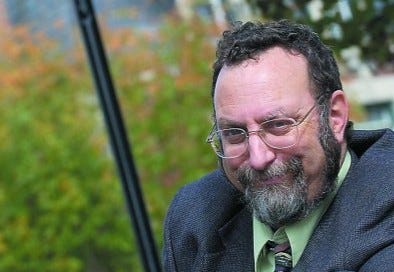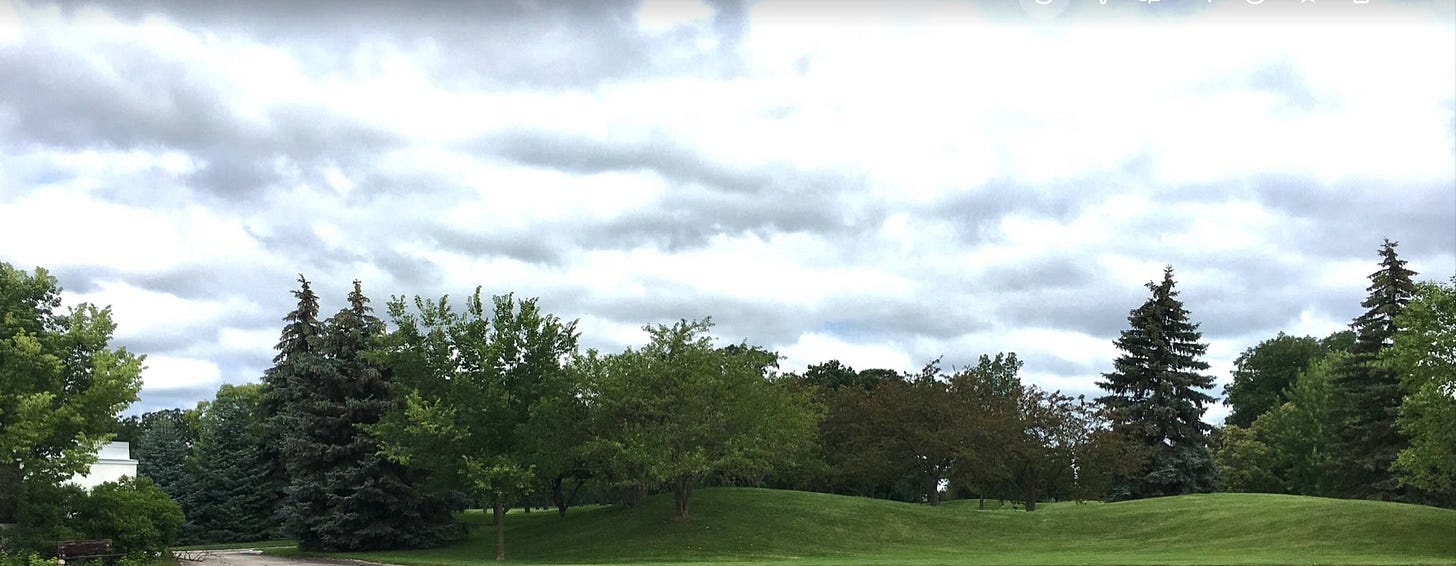Affordable Housing: Fear and Loathing in the Suburbs
President Trump says he will save American suburbs from the threat of affordable housing.
They’re not exactly terrified in Northbrook.
“I am happy to inform all of the people living their Suburban Lifestyle Dream that you will no longer be bothered or financially hurt by having low income housing built in your neighborhood,” Trump quoth in his twitterish manner in late July, repeating the concept often since then.
“I’m not worried about that,” Northbrook Village President Sandy Frum said last week.
She and her fellow village board members recently rejected a proposed development on an old golf course that called for 76 affordable housing units, but not because they didn’t want that many.
They actually said there were too few.
An affordable housing fandom is relatively new to Northbrook government. Frum, or other board members, would occasionally throw the possibility of fostering low-cost housing on the table, and it would curl up and die there.
“It just doesn’t have the support on this board,” she told me once.
Interestingly, there never seemed to be a groundswell against the notion whenever it was broached over the last 30 years. But generations of Northbrook board members seemed convinced that such opposition existed.
Study after study -- dozens over the years -- indicate affordable housing rarely hurts values of nearby existing homes. But the trustees believed their constituencies were in mortal terror that it would occur.
So Northbrook trustees just toyed with what they called “attainable housing,” which was defined as housing that was cheap enough, for instance, for teachers and police officers who work in town.
But since most Northbrook teachers and cops bring home well over $60,000, they don’t exactly have to shop for generic laundry detergent and medium eggs at the dollar store.
When a new Mariano’s supermarket opened a few years ago, however, managers had to employ a bus to shuttle in workers from out of town. That store was built on the same lot as a big new apartment building that had nothing but luxury units.
An election in the spring of 2019 reversed the Northbrook board’s majority-conservative political makeup. Soon, the village was on the way to a plan which will require 15% affordable housing in most new developments. It will be ready, Frum thinks, before the end of the year.
Builders of new projects, like the 581-unit Terra Verde development envisioned for the land of the bankrupt Green Acres Country Club, below, were told to set parameters as if it were already law.
Terra Verde would have been deep-sixed even if affordable housing wasn’t a thing. The builders of the 127-acre project whiffed on giving the park district a 10-acre plot to build on, in the part of town least served by parks. And the trustees inferred the developers lied about how many Terra Verde kids might be coming to the local schools.
But the trustees seemed most peeved by affordable housing issues, starting with the number of planned units, which was 12 percent of the total instead of 15.
“We made it very clear … that we wanted the affordable housing spread throughout the development,” Trustee Muriel Collison said.
“The four townhomes that are affordable are practically in another zip code.”
Trustee Heather Ross added, “I was very disappointed to see that, after every trustee agreed that we don’t want to see segregated affordable housing.
“It's stigmatizing,” she said. It “says to everyone in the city of Northbrook, ‘Here is the building where the people in affordable housing live.’ And that’s exactly what I’m hoping our ordinance and good policy is seeking to avoid.”
Right after Trump sent the tweet that began this opus, he fired off this addendum: “I have rescinded the Obama-Biden AFFH Rule. Enjoy!”
He labeled the Affirmatively Furthering Fair Housing rule "hell for suburbia," adding that "people fight all of their lives to get into the suburbs and have a beautiful home. There will be no more affordable housing forced in to the suburbs … It's been going on for years. I've seen conflict for years."
This is a nonsense sandwich, but since barely anyone has heard of the AFFH, he might get away with terrorizing some suburbanites into voting for him.
The AFFH was tucked into the 1968 Civil Rights Act so that cities applying for federal Community Development Block Grants, to do things like finance affordable housing, go beyond just trying to end discrimination, and actually promote programs that "affirmatively further fair housing." But there weren’t any details.
After years of struggle to craft some details that seemed fair and palatable, the Department of Housing and Urban Development came up with a draft, which was approved in 2015.
Shortly after Trump took office, his HUD chief, Ben Carson, “paused” the new rule, I guess, so that firms seeking to build affordable housing wouldn’t have to prove it would really do any good.
In July, the new rule was dropped altogether. But the old, vague rule still exists.
That rule is clear enough, however, that it’s been used in court to force housing developers to pretty much do exactly what the discarded new rule spells out. So the main difference is that developers will still give lawyers a living wage.
Despite all that backstory, Northbrook, with its new housing code, may soon be a little less expensive and abnormal of a place to live.
Currently, it is, demographically, the oldest town in its area, and one of the least African-American. With a little diversity, residents can live with a few people who are a little different from themselves.
The wheels of that inclusionary zoning ordinance were put in motion before anyone ever heard of George Floyd. But since his death, several other Chicago suburbs are considering a similar path.
That makes sense. Mostly-white towns populated by residents comfortable with living apart from African-Americans tended to hire cops who grew up that way, too.
And the cops were tasked with being the point of the spear in keeping the towns white. If you don’t look like you belong here, you don’t.
Move along. Be quick about it.
Sign up to get Irv Leavitt’s “Honest Context” free in your inbox by clicking on the subscribe button.




